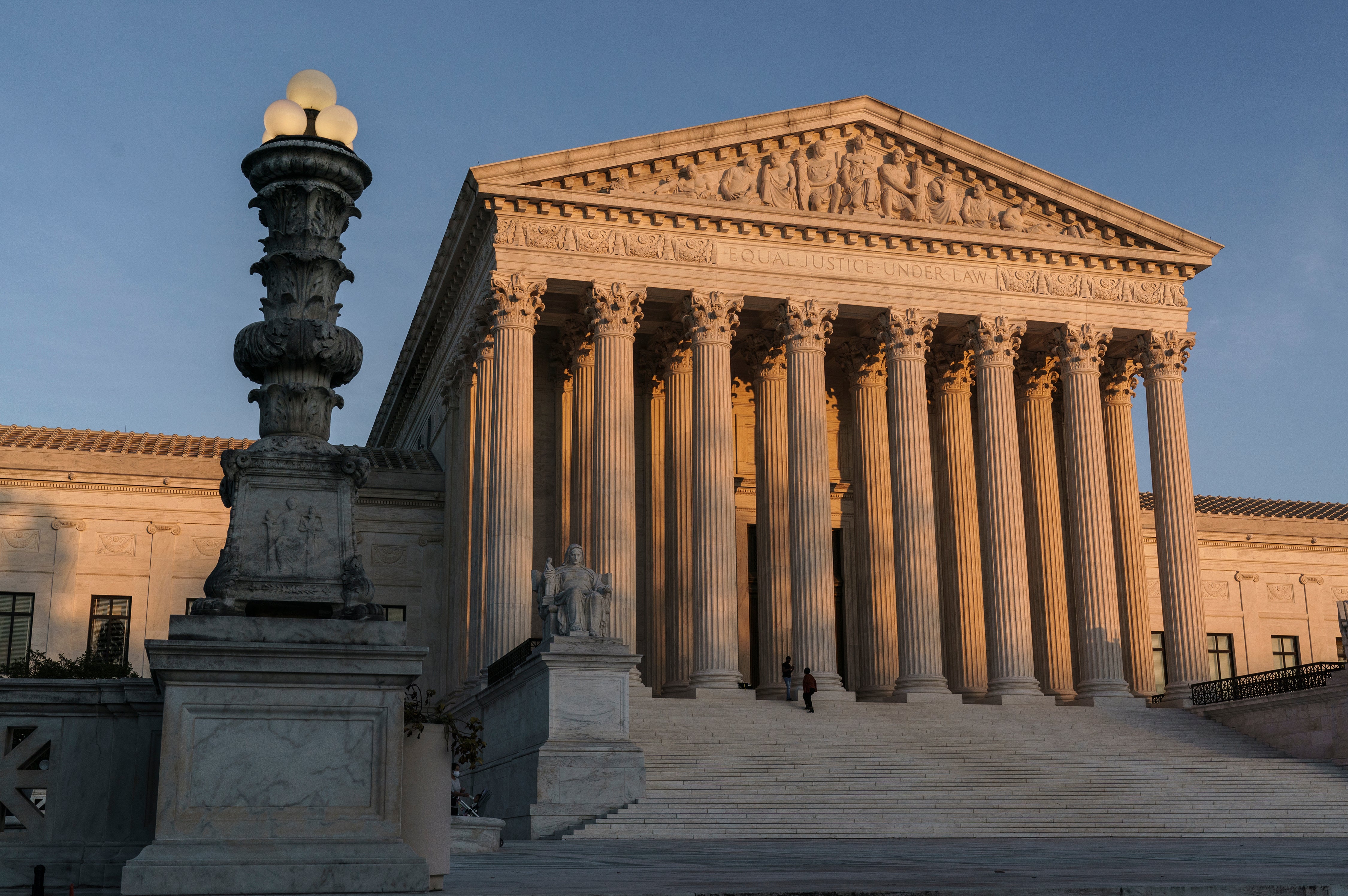Supreme Court keeps new rules about sex discrimination in education on hold in half the country
The Supreme Court has kept on hold in roughly half the country new regulations about sex discrimination in education, rejecting a Biden administration request

Your support helps us to tell the story
From reproductive rights to climate change to Big Tech, The Independent is on the ground when the story is developing. Whether it's investigating the financials of Elon Musk's pro-Trump PAC or producing our latest documentary, 'The A Word', which shines a light on the American women fighting for reproductive rights, we know how important it is to parse out the facts from the messaging.
At such a critical moment in US history, we need reporters on the ground. Your donation allows us to keep sending journalists to speak to both sides of the story.
The Independent is trusted by Americans across the entire political spectrum. And unlike many other quality news outlets, we choose not to lock Americans out of our reporting and analysis with paywalls. We believe quality journalism should be available to everyone, paid for by those who can afford it.
Your support makes all the difference.The Supreme Court on Friday kept on hold in roughly half the country new regulations about sex discrimination in education, rejecting a Biden administration request.
The court voted 5-4, with conservative Justice Neil Gorsuch joining the three liberal justices in dissent.
At issue were protections for pregnant students and students who are parents, and the procedures schools must use in responding to sexual misconduct complaints.
The most noteworthy of the new regulations, involving protections for transgender students, were not part of the administration's plea to the high court. They too remain blocked in 25 states and hundreds of individual colleges and schools across the country because of lower court orders.
The cases will continue in those courts.
The rules took effect elsewhere in U.S. schools and colleges on Aug. 1.
The rights of transgender people — and especially young people — have become a major political battleground in recent years as trans visibility has increased. Most Republican-controlled states have banned gender-affirming health care for transgender minors, and several have adopted policies limiting which school bathrooms trans people can use and barring trans girls from some sports competitions.
In April, President Joe Biden’s administration sought to settle some of the contention with a regulation to safeguard rights of LGBTQ+ students under Title IX, the 1972 law against sex discrimination in schools that receive federal money. The rule was two years in the making and drew 240,000 responses — a record for the Education Department.
The rule declares that it’s unlawful discrimination to treat transgender students differently from their classmates, including by restricting bathroom access. It does not explicitly address sports participation, a particularly contentious topic.
Title IX enforcement remains highly unsettled. In a series of rulings, federal courts have declared that the rule cannot be enforced in most of the Republican states that sued while the litigation continues.
In an unsigned opinion, the Supreme Court majority wrote that it was declining to question the lower court rulings that concluded that “the new definition of sex discrimination is intertwined with and affects many other provisions of the new rule.”
Justice Sonia Sotomayor wrote in dissent that the lower-court orders are too broad in that they “bar the Government from enforcing the entire rule — including provisions that bear no apparent relationship to respondents’ alleged injuries.”